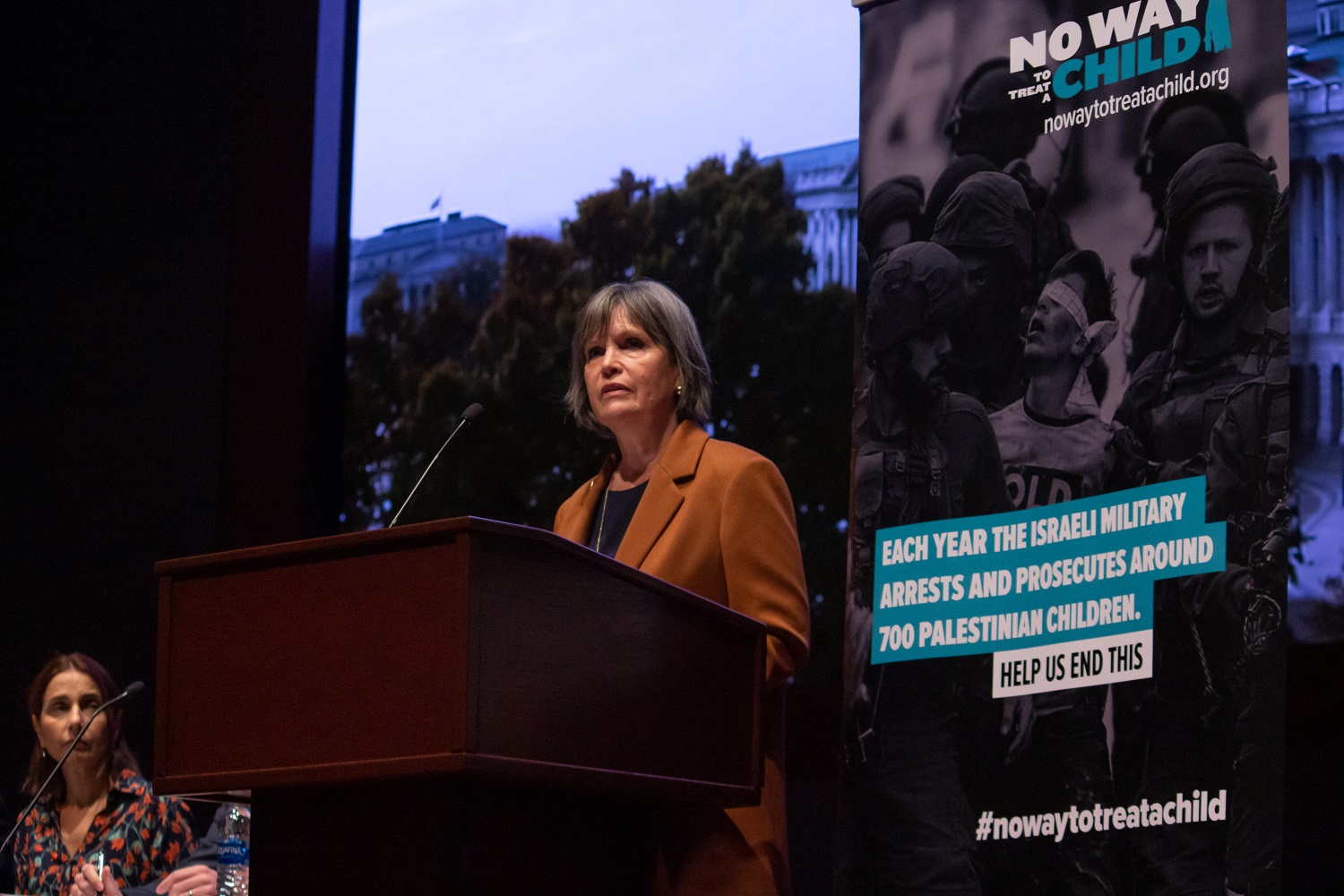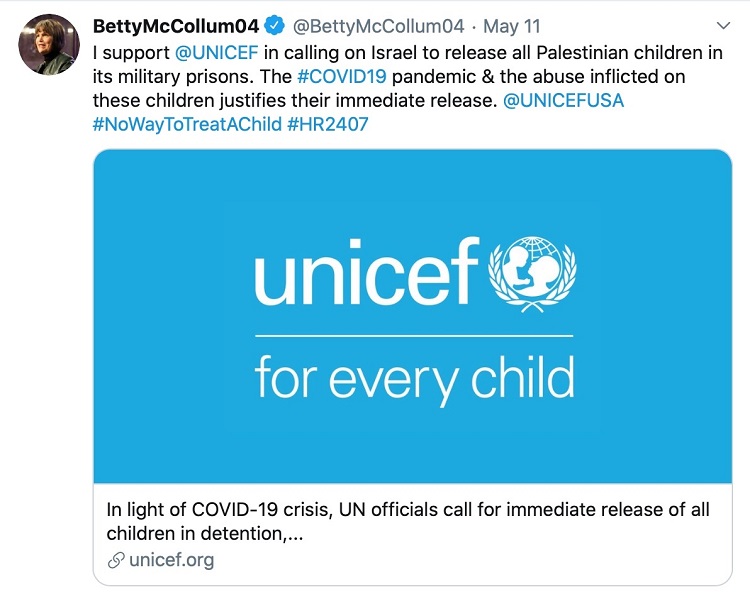
Betty McCollum testifies at a No Way to Treat a Child Congressional briefing Carl Roose / AFSC
Earlier this week, UNICEF officials in the occupied Palestinian territory called for the immediate release of Palestinian children from Israeli military detention in light of the COVID-19 pandemic—a key voice joining the chorus of advocates, including AFSC, working to end these human rights violations.
Since 2000, more than 10,000 Palestinian children in the West Bank have been arrested and held in the Israeli military detention system that denies them their basic rights. For the past five years, AFSC and Defense for Children International-Palestine (DCIP) have partnered on the No Way to Treat a Child campaign to expose this widespread and systemic abuse of Palestinian children—one part of our ongoing work to end Israel’s occupation of the Palestinian territory.
Since the beginning of the pandemic, Israeli soldiers have continued to lock up more Palestinian children in military detention, according to figures released by the Israeli prison service. At the end of August, 153 Palestinian children were detained in Israeli prisons and detention centers. Two children tested positive for COVID-19 in prison this year. One was held was held in detention for 40 days, before Israeli authorities finally released him on bail on Sept. 1. The second child was detained Sept. 15, spent two days in Israeli custody before he was tested, and then was kept in a cell with other children as he was quarantined. On Sept. 24 he was sentenced to time served for a stone throwing offense and released on a 2000 NIS ($590) bond.

Our advocacy to end the detention of Palestinian children is more critical than ever. As UNICEF noted in its May 11 statement: “Children in detention face heightened risk of contracting COVID-19, with physical distancing and other preventive measures often absent or difficult to achieve.”
These children live in compromised sanitary conditions, with limited access to resources to maintain minimum hygiene routines or to prevent infection from the COVID-19 virus. “The fact that Israeli forces continue to detain Palestinian children and hold the overwhelming majority in pretrial detention is unconscionable given the increased risk presented by COVID-19 to people deprived of their liberty,” says Ayed Abu Eqtaish, DCIP Accountability Program director.
While international law demands that children only be detained as a measure of last resort, pretrial detention is the norm for Palestinian children detained by the Israeli army. The pandemic has further threatened their due process rights. “Since the start of the COVID-19 crisis in Israel, legal proceedings are on hold, almost all prison visits are cancelled, and children are denied in-person access to their families and their lawyers,” UNICEF notes. “This creates additional hardship, psychological suffering, and prevents the child from receiving the legal advice to which they are entitled. For children awaiting trial, these pressures could put them under increased pressure to incriminate themselves, pleading guilty to be released faster.”
Palestinian children have the right to a safe and just future, like all children in communities around the world. The No Way to Treat a Child campaign believes the U.S. government must take concrete steps towards this future by holding Israeli authorities accountable for its violations of Palestinian children’s rights—especially in this pandemic.
This year over 16,000 people have signed a petition calling on the Israeli government to release Palestinian children from Israeli detention due to the rapid global spread of COVID-19. Will you join our efforts to advocate for a peaceful future that ensures human rights, equality, and dignity for all Palestinians and Israelis?
Here’s how you can take action today:
- Sign our No Way to Treat a Child petition: As Henrietta Fore, executive director of UNICEF, stated, “The best way to uphold the rights of detained children amidst a dangerous pandemic is their safe release.” Add your name to the more than 10,000 people who are calling on Israeli authorities to release Palestinian children from detention.
- Get your Quaker meeting or congregation involved in the No Way to Treat a Child campaign: With support from AFSC, people of faith across the U.S. are mobilizing to raise awareness about Palestinian detention and urge legislations to take action to end it. You can join us.
- Learn more about the detention of Palestinian children and how you can work to end it: Over the past five years our No Way to Treat a Child campaign has built support in Congress and across the U.S. for the call to end Palestinian child detention. A year ago, U.S. Rep. Betty McCollum introduced H.R. 2407 “Promoting Human Rights for Palestinian Children Living Under Israeli Military Detention Act,” which would prohibit U.S. taxpayer funding for the military detention of children by any country. Learn more about this groundbreaking bill and other ways to get involved in our campaign.
